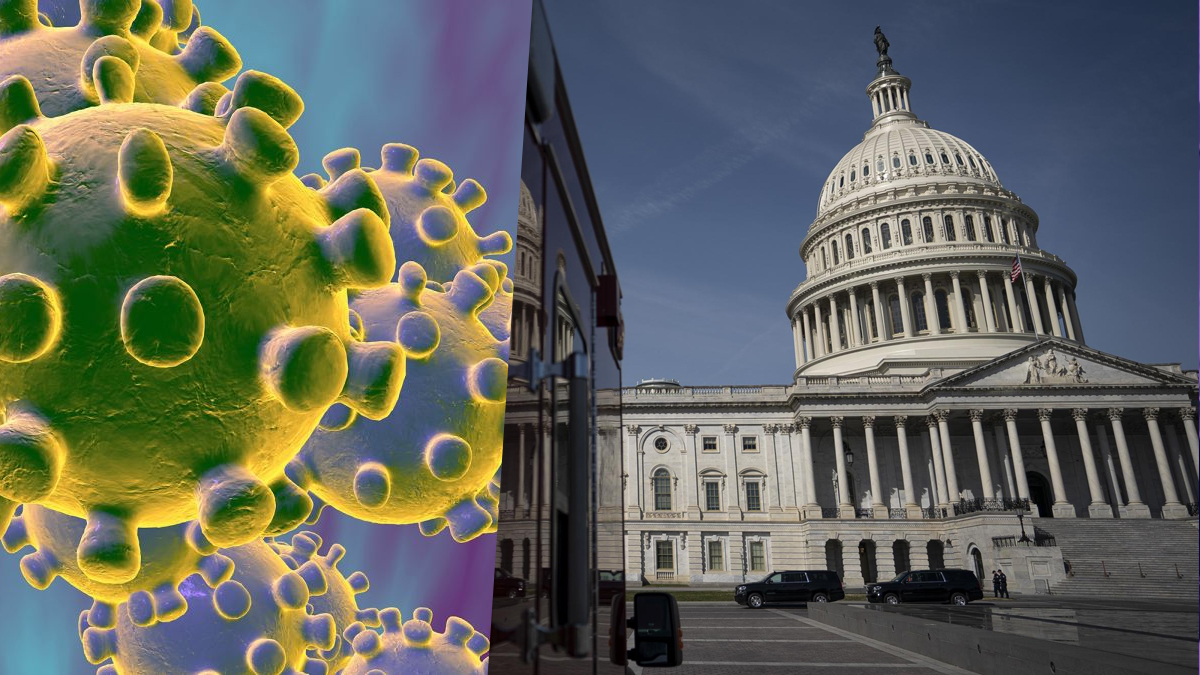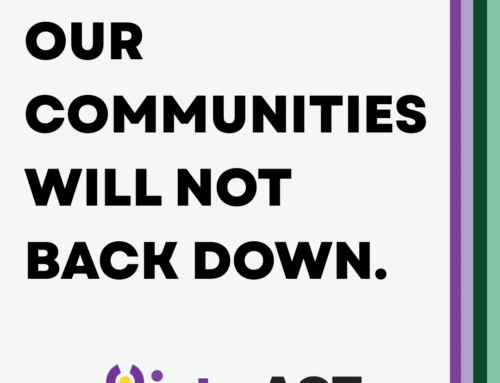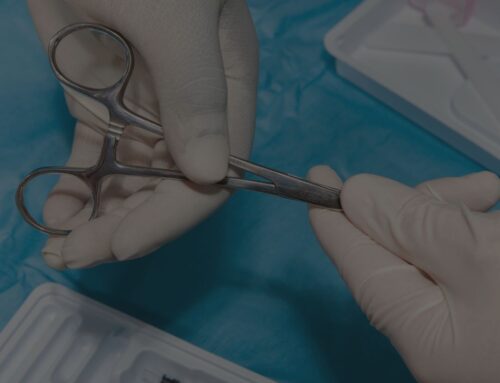
The CARES Act protects Americans from COVID-19 hardship. But existing COVID-19 relief doesn’t do enough to meet intersex people’s specific needs. We call on Congress to account for these needs in future legislation. interACT Executive Director Kimberly Zieselman submitted this letter to Congress:
Dear Chairs Grassley and Neal and Ranking Members Wyden and Brady,
I write as both an intersex person and the Executive Director of interACT: Advocates for Intersex Youth, the nation’s oldest and largest organization dedicated exclusively to advancing intersex rights. Intersex refers to the approximately 1.7 percent of all Americans born with naturally occurring variations in their chromosomes, genitals, internal reproductive anatomy, and/or hormone production. Intersex people have existed within all cultures throughout all time, yet face shame and stigma in much of the United States, particularly in healthcare. I write to thank you for your role in passing the Coronavirus Aid, Relief, and Economic Security Act as well to ask for your help in ensuring further measures to protect the well-being of the intersex community and other marginalized groups as this crisis continues.
Your work to pass the CARES Act will undoubtedly save lives and improve the outlook for countless Americans. While it is an important step forward, additional action is needed to ensure the most vulnerable among us are not left behind. We ask that the next emergency legislation to address the disastrous health and economic consequences of COVID-19 include:
- Protections against discrimination in healthcare, including pandemic mitigation/response and corresponding relief measures. Access to services, facilities, and relief should not be denied or impaired for any discriminatory reason, including whether a person is intersex. Many intersex diagnoses correspond with unique medical needs, and our community must be assured of the availability of care absent discrimination on the basis of their variations in sex characteristics.1 In times of increased public anxiety, we feel it is necessary to affirm guarantees of just and equitable treatment and to remember our common humanity.
- A route to affordable healthcare now for all who need it, and economic measures to ensure economic security for the most severely affected. Countless individuals are facing the possibility of disruption in health insurance coverage after changes in employment status, and still others who lacked coverage previously are continuing to weigh seeking much-needed medical attention against economic peril. Intersex people who are also disabled or living with other chronic conditions such as HIV/AIDS may have a heightened need to access medical care and face a further increase in risk when they cannot. Already marginalized individuals such as those from traditionally underserved racial and ethnic backgrounds have an even greater need for financial assistance in the midst of the current crisis, particularly given recent data indicating higher mortality rates for those populations. To alleviate the extra burdens the pandemic has brought to already-burdened households, paid leave, unemployment, and nutrition benefits must be increased and offered to all who need them. Debt relief measures should be extended to those who are struggling, including those who are unemployed, low-income, and indebted, who were not helped by the previous relief package.
Thank you in advance for ensuring intersex Americans are not subjected to further hardship due to discriminatory practices or economic instability in this dire time.
Sincerely,
Kimberly Zieselman
Executive Director
interACT: Advocates for Intersex Youth
1 For example, some forms of Congenital Adrenal Hyperplasia – one of the most common intersex traits – cause a hormonal variation that must be carefully managed with medication to prevent life-threatening adrenal crises. Falling ill causes the body to require more adrenal hormones, which increases the risk of a crisis. Individuals with these more dangerous forms of Congenital Adrenal Hyperplasia who contract COVID-19 – or even a cold or flu – have an increased chance of death.






